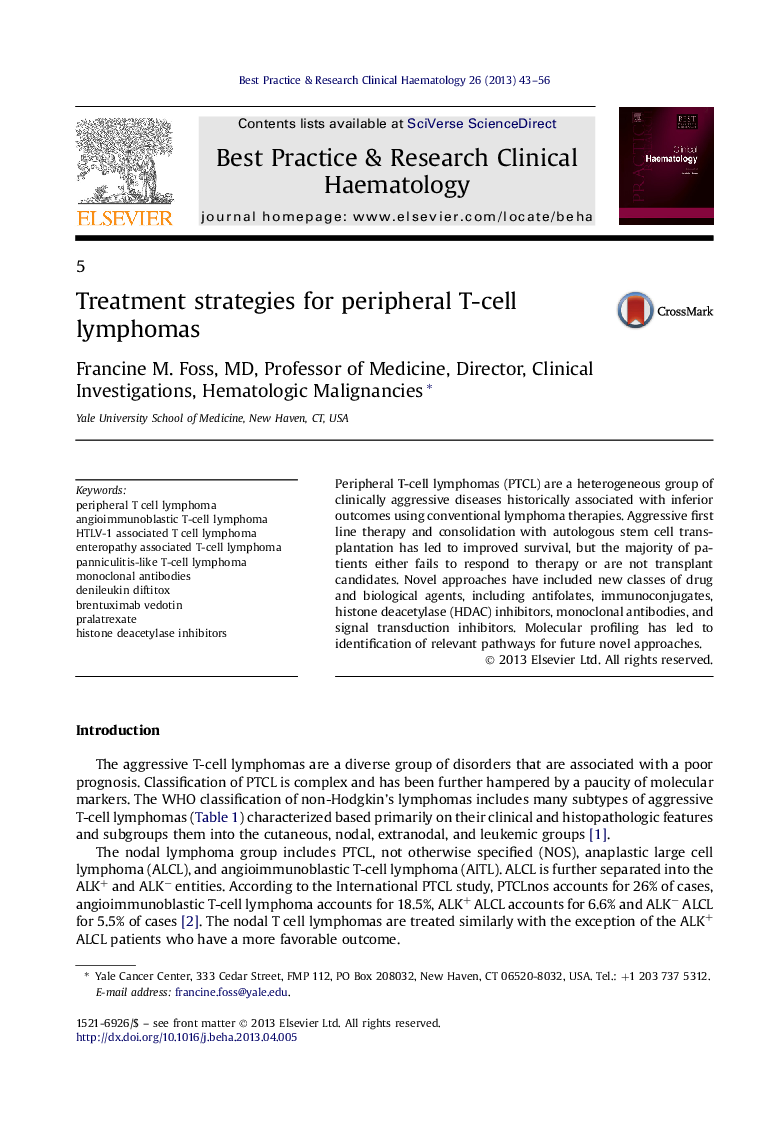| Article ID | Journal | Published Year | Pages | File Type |
|---|---|---|---|---|
| 2100287 | Best Practice & Research Clinical Haematology | 2013 | 14 Pages |
Abstract
Peripheral T-cell lymphomas (PTCL) are a heterogeneous group of clinically aggressive diseases historically associated with inferior outcomes using conventional lymphoma therapies. Aggressive first line therapy and consolidation with autologous stem cell transplantation has led to improved survival, but the majority of patients either fails to respond to therapy or are not transplant candidates. Novel approaches have included new classes of drug and biological agents, including antifolates, immunoconjugates, histone deacetylase (HDAC) inhibitors, monoclonal antibodies, and signal transduction inhibitors. Molecular profiling has led to identification of relevant pathways for future novel approaches.
Keywords
Related Topics
Life Sciences
Biochemistry, Genetics and Molecular Biology
Cancer Research
Authors
Francine M. Foss,
